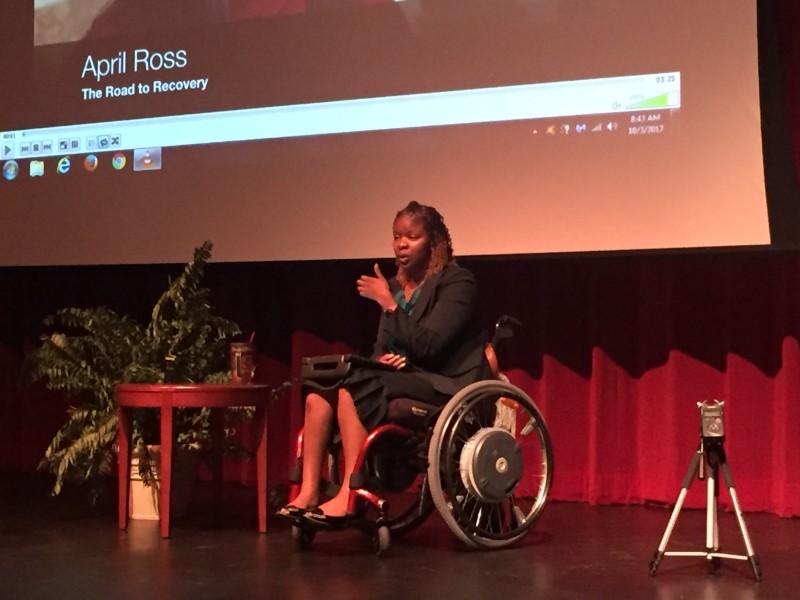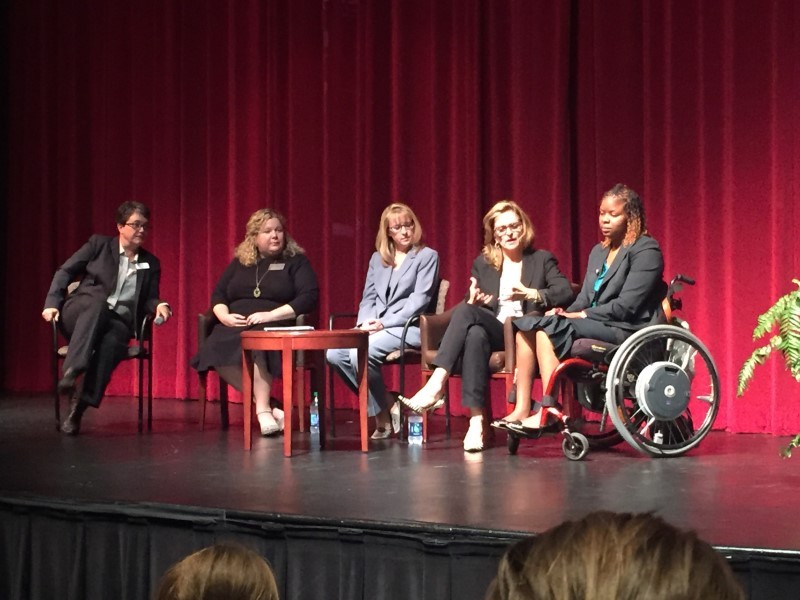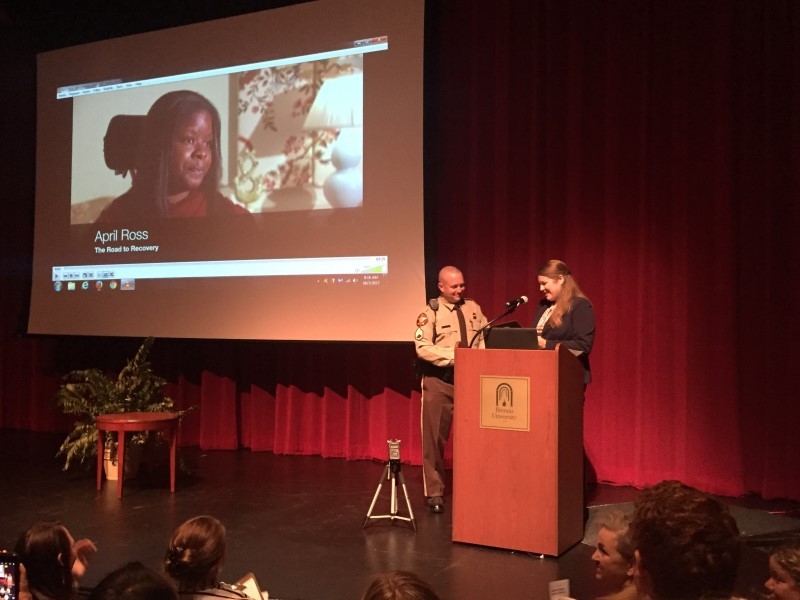"I'm in a different box. I can't be them because I know better. I'm a prosecutor, I'm a law student. I'm smart, I'm this. So there was kind of a separation ," April Ross said, speaking of herself as a young volunteer in Fulton County, working with temporary protective orders. "Years forward, here I sit, and I realize... there's no them. There's just us."
Ross was the keynote speaker at Tuesday morning's annual Domestic Violence Breakfast and Briefing at the Brenau Downtown Center.
The annual briefing is hosted by the Hall County Domestic Violence Task Force. This year, it featured the incredible story of Ross, a Fulton County ADA who was shot and paralyzed by her estranged husband in 2014. Ross, while facing challenges with a spinal cord injury and adjusting to life in a wheelchair, has returned to work as an ADA and now works on the trial unit for domestic violence cases.
In her keynote, she spoke about cases she'd worked on where the system and how as lawyers and law enforcement, they needed to remember that the victims are different, each an individual and no two cases alike. She said you can't create a "them and me" mentality, because one day, you might find yourself in the same situation, like she did.
Ross said she still has positive memories of her husband, who committed suicide following the shooting. She said he didn't have a criminal record and their relationship was not violent before the shooting. She also remembered the sweet things he did for her in the relationship. Ross said in the panel discussion later that they had been off and on in a relationship since they were 16 years old.
There's something about the bond we create in a relationship, whether it's a good one of a bad one or if you two get along or not or if this person is healthy for you or not, that makes us stick it out longer than we should," Ross said. "And if we remember that when we come face to face with a victim in our work you will know first and foremost my job is not to judge this person."
She went in depth talking about why victims struggle speaking to law enforcement and prosecutors, including re-victimization and re-traumatization.
"Our job as victim-advocates as prosecutors, as judges, as law enforcement isn't just to get through this person's case. This is a human being with a life."
She said many victims are financially dependent on their abusers, and often wonder if they could survive if (s)he gets arrested. She said many prosecutors don't realize the system is often better for the perpetrators and don't understand what a complete upheaval a domestic violence case causes for the victim, resulting in re-victimization.
Ross said one of the main things she wanted to get across was "collaboration not condescension."
"Don't get so jaded in your own world that you forget to remember, and to open up to this person, if you want to touch their lives, then you've got to go all the way in."
Following Ross's story, Ross joined Brenau Psychology Department Chair Julie Battle, Gateway Domestic Violence Center Executive Director Jessica Butler. Georgia Commission on Family Violence Executive Director Jennifer Thomas and Hall County Solicitor General Stephanie Woodard for an after chat panel discussion.
The panel had a large audience of Brenau students, featuring majors from nursing to occupational therapy to psychology. Students and community members asked about her recovery process, details about her emotions through the incident and her recovery, domestic violence resources and her opinion on domestic violence situations involving social media.
The briefing also recognizes an Officer of the Year award for service in domestic violence situations. Sgt. James Brown with the Hall County Sheriff's Office was recognized this year.











